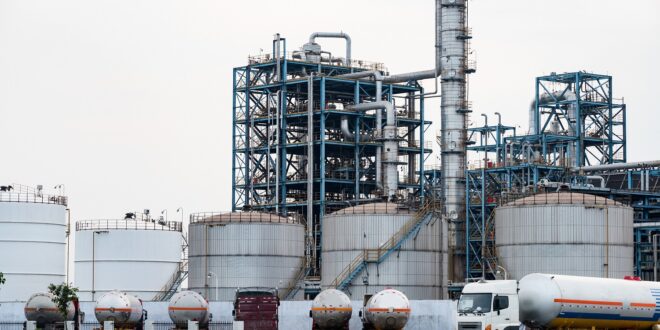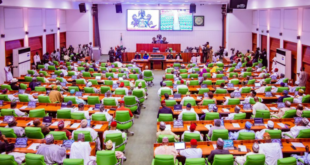The Federal Government has announced that indigenous refineries, including the Dangote Refinery, can now purchase crude oil in either naira or dollars.
This decision comes as part of a broader effort to ease pressure on the country’s foreign exchange rate and encourage domestic refining operations.
The move is also expected to bolster Nigeria’s crude oil and gas reserves, which have recently seen a notable increase.
The Nigerian Upstream Petroleum Regulatory Commission (NUPRC) unveiled the new template for domestic crude oil supply obligation during a briefing in Abuja, emphasizing the importance of compliance with the provisions of the Petroleum Industry Act (PIA) 2021.
The template aims to facilitate the seamless implementation of the Domestic Crude Oil Supply Obligation (DCSO) and ensure a consistent supply of crude oil to domestic refineries.
The Chief Executive of the NUPRC, Gbenga Komolafe, highlighted the significance of this development in fostering the growth of Nigeria’s midstream sector.
He stated that transactions in naira would help alleviate the pressure on the country’s exchange rate, ultimately benefiting the economy.
Nigeria has experienced a substantial increase in its crude oil and gas reserves, with the total crude oil and condensate reserves reaching 37.5 billion barrels as of January 1, 2024.
The associated gas and non-associated gas reserves have also increased to 102.59 trillion cubic feet and 106.67 trillion cubic feet, respectively, resulting in total gas reserves of 209.26 trillion cubic feet.
The positive gross additions of 1.087 billion barrels of oil and 2.573 trillion cubic feet of gas have contributed to an improved reserves life index of 68.01 years for oil and 97.99 years for gas.
This increase in reserves is a testament to the government’s ongoing efforts to explore and develop Nigeria’s oil and gas resources.
The new template for the DCSO has been well-received by stakeholders, including the Crude Oil Refinery Owners Association of Nigeria (CORAN), which had previously raised concerns about the challenges faced by modular refineries in accessing foreign exchange for crude oil purchases.
The government’s decision to allow transactions in both naira and dollars is expected to provide much-needed relief for these refineries and encourage further investment in the sector.
Nigeria’s oil and gas sector is undergoing significant changes, with the government taking proactive measures to address the industry’s challenges and promote sustainable growth.
The latest developments, including the introduction of the DCSO template and the decision to allow crude oil purchases in naira or dollars, reflect the government’s commitment to creating a more conducive environment for domestic refining operations and boosting Nigeria’s oil and gas reserves.
As Nigeria continues to explore new sources of oil and gas through the development of frontier basins, the potential for further growth in the sector remains high.
With the right policies and support in place, Nigeria is poised to solidify its position as a leading oil and gas producer in Africa and contribute to the global energy market.
Subscribe to the Advocate News letter and receive news updates daily in your inbox.
 Advocate.ng Latest news update on politics, entertainment, sport and more
Advocate.ng Latest news update on politics, entertainment, sport and more




